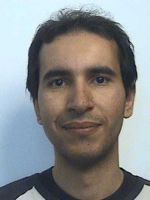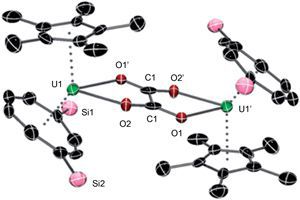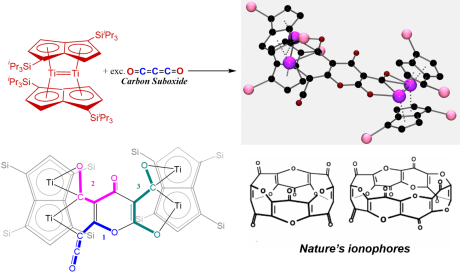Spotlight on Dr Nikolaos Tsoureas
Research Fellow in Chemistry at the School of Life Sciences
Previous Research
 When I started university, I saw that I had an affinity towards inorganic chemistry, and then came across organometallic chemistry, and I found it really interesting, my true calling if you like. It is that fusion between inorganic and organic chemistry, which means you can make compounds that have very bizarre and interesting properties. You can affect reactions that otherwise wouldn’t happen, and you can make really fancy looking molecules in one step like that and I was just enthralled by it.
When I started university, I saw that I had an affinity towards inorganic chemistry, and then came across organometallic chemistry, and I found it really interesting, my true calling if you like. It is that fusion between inorganic and organic chemistry, which means you can make compounds that have very bizarre and interesting properties. You can affect reactions that otherwise wouldn’t happen, and you can make really fancy looking molecules in one step like that and I was just enthralled by it.
I finished my undergraduate in Greece and then I went straight on for a PhD in inorganic/organometallic chemistry at the University of Southampton. Since then I have been in that area. As you are not looking only at a specific type of metal, or specific type of compounds, there’s a lot of variety. After my PhD I was offered a short post-doc at the University of Southampton, then moved to Bristol for two and a half years. I have now been at Sussex for almost seven years now.
Current Research
I see myself as a molecular engineer when I make something interesting, something that’s never been done before. When you synthesise a new compound that turns out to be responsible for the result of an interesting unseen reaction, and then getting the molecular structure and being able to talk about how things connect to each other, that’s the most exciting thing about my research.
Organometallic chemistry involves compounds that contain a metal centre but all around it are things that contain lots of carbon. That gives us the ability to make compounds that on the one hand can dissolve in organic solvents, like organic molecules do, but at the same time keep some of the very interesting and useful properties of the metals, for instance in being able to oxidise things.
By changing what is around the metal centre we can change the properties of the metal centre. So we can change, for instance, how strongly oxidising or reducing the metal centre is and therefore alter its reactivity, which has important implications for catalysis. Catalysis underpins everything, from making cheese to pharmaceuticals, so being able to make bonds in a specific way is really important and that’s what we do.

What we’re doing is very exploratory. The culture in the group here at Sussex, is to try and synthesise molecules that show unique reactivity or challenge common textbook knowledge; do your best and hopefully you make something beautiful (aesthetically, intellectually and scholarly). My good relationship with my line-manager has resulted in me doing something that is making very interesting molecules with biological relevance and that have the potential to open a completely new field in inorganic and organometallic chemistry.
Recently I’ve been working on one of the least known oxides of carbon, carbon suboxide. It was studied about three decades ago, and then people lost interest and nothing was done on it for a very long time. It turns out that it is forming in cells, and nature being a great recycler uses it to form cyclic structures that regulate ion channels in cells. By importing lots of energy into compounds we have basically started forming these biologically important and relevant structures.
We submitted a publication on our results on the reactivity of carbon suboxide. I have presented the paper to conferences and given talks about it, and it has attracted attention. We managed to do something that’s completely new by taking 3 molecules and coupling them together in just one step, which forms the core of these biologically relevant compounds. By changing the way atoms are incorporated in it you change not only its structure but its properties. You can start imagining making things that can act as better ion channel regulators which is very important in Alzheimer’s, diabetes, and neuro degenerative diseases. So, it has a biological perspective to it, not that we are pursuing it in such a way, but it is something that we are interested in.

The Future
I would like to start my own independent career. My aspiration would be to try and change the way that we activate all these small molecules that we’re looking at. Still in a controlled fashion, but in a fashion resembling that of nature. There is this type of reaction, enabling the simultaneous transfer of an electron and a proton, that we know exists, has been well studied, but until recently not so many people have looked into; especially using it for catalysis. There are people in the United States who have started doing it, but the groundwork for using it in small molecule activation has just started. The catalytic toolbox that we’ve developed so far is starting to show its limitations and if we want to start making things happen as easily as they happen in nature, we have to move towards such paradigm shifts.
Interview by Alex Aghajanian

